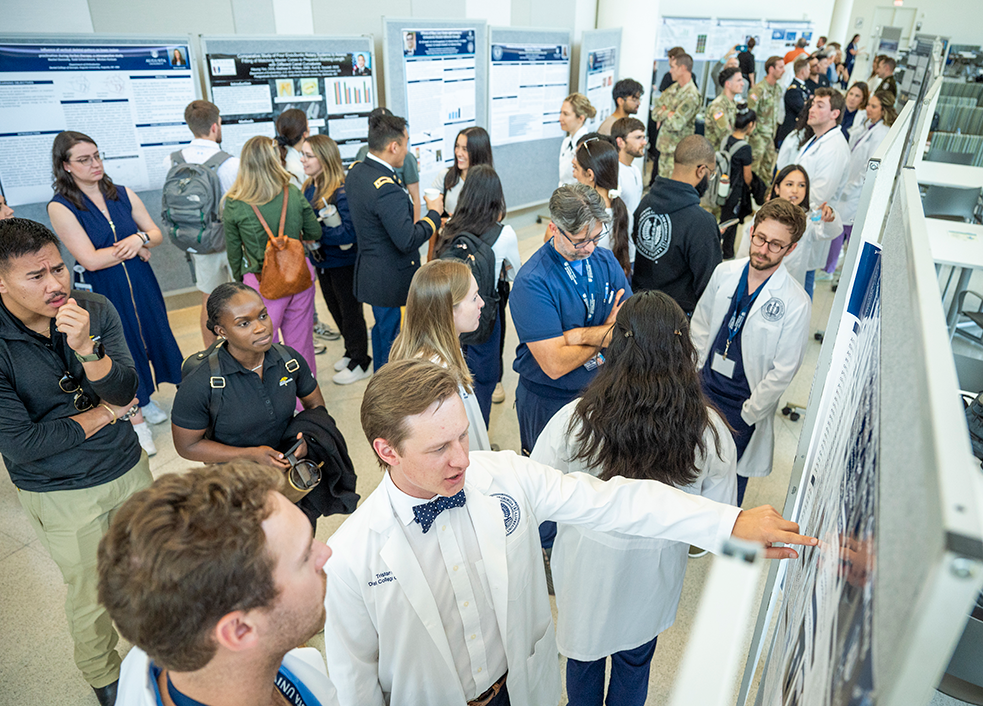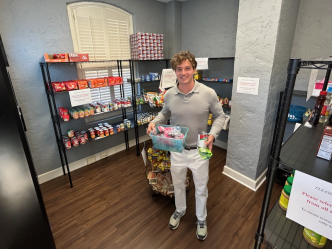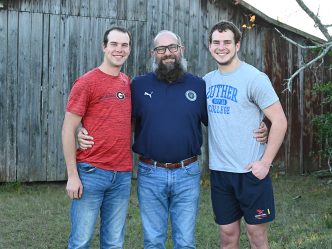Excited chatter recently filled the lobby of the J. Harold Harrison, M.D. Education Commons as Augusta University students, faculty, staff and guests recently gathered for the Dental College of Georgia’s 35th annual Southeastern Regional Dental Research Symposium.
It was a chance for dental students, graduate students, postdoctoral fellows, residents and faculty to present their research project findings and clinical treatments.
There were even a couple of undergraduates in the mix.
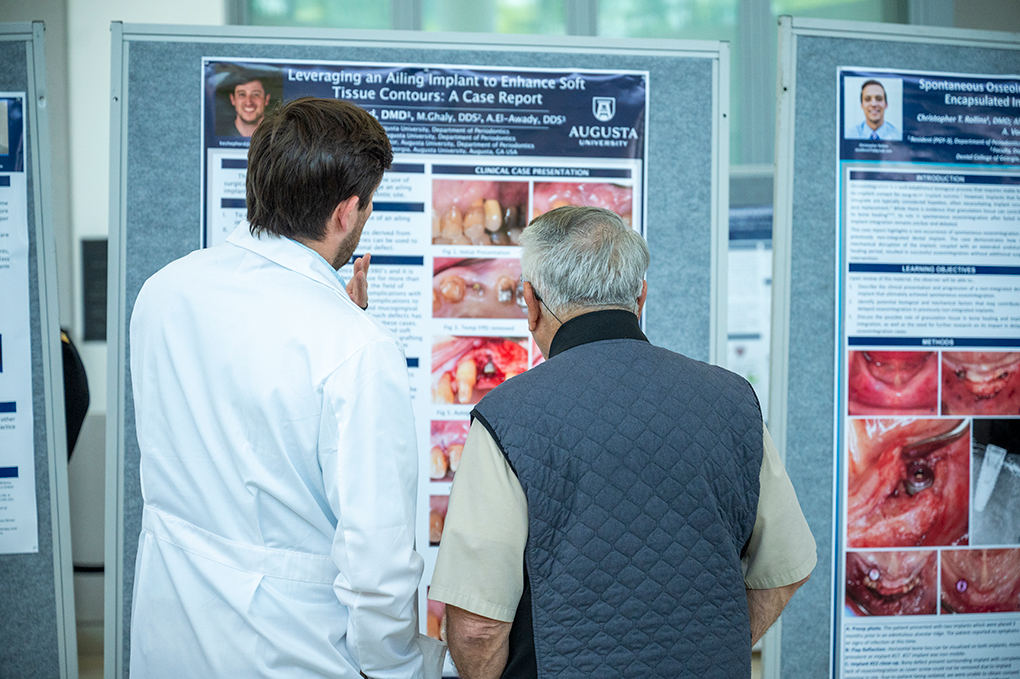
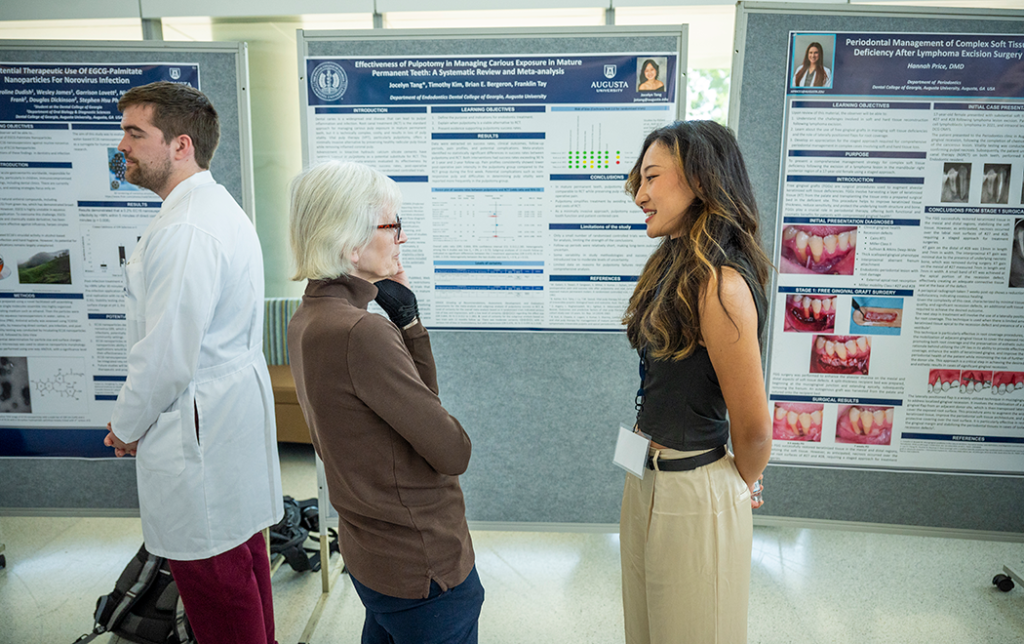
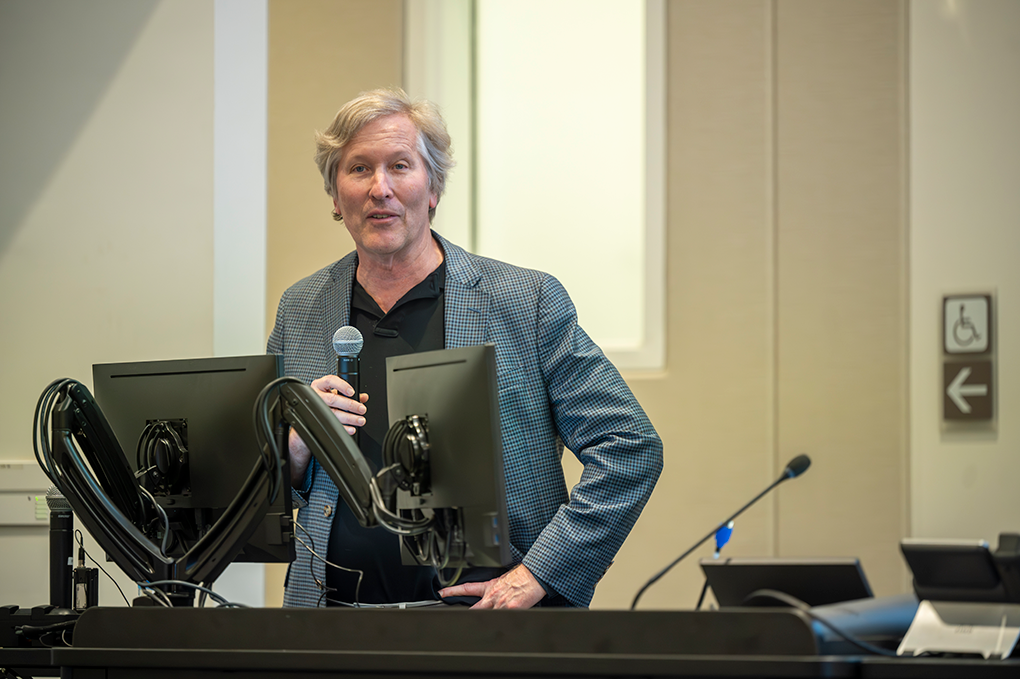
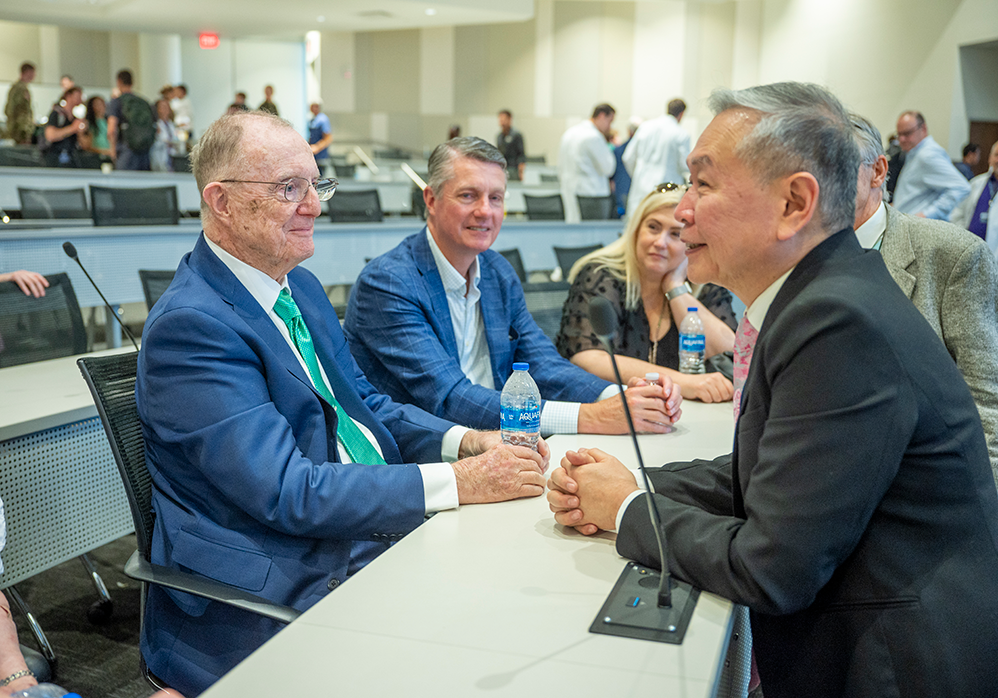
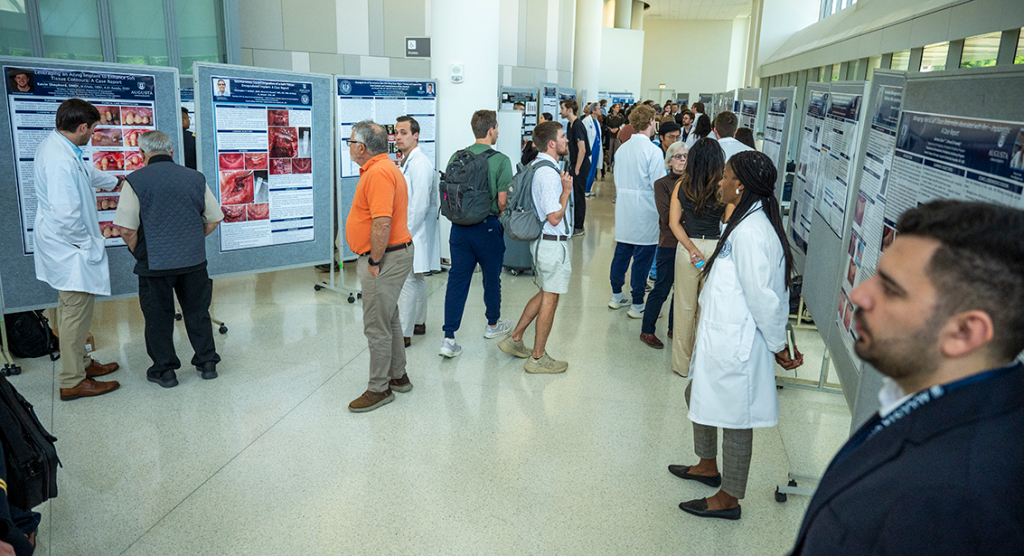
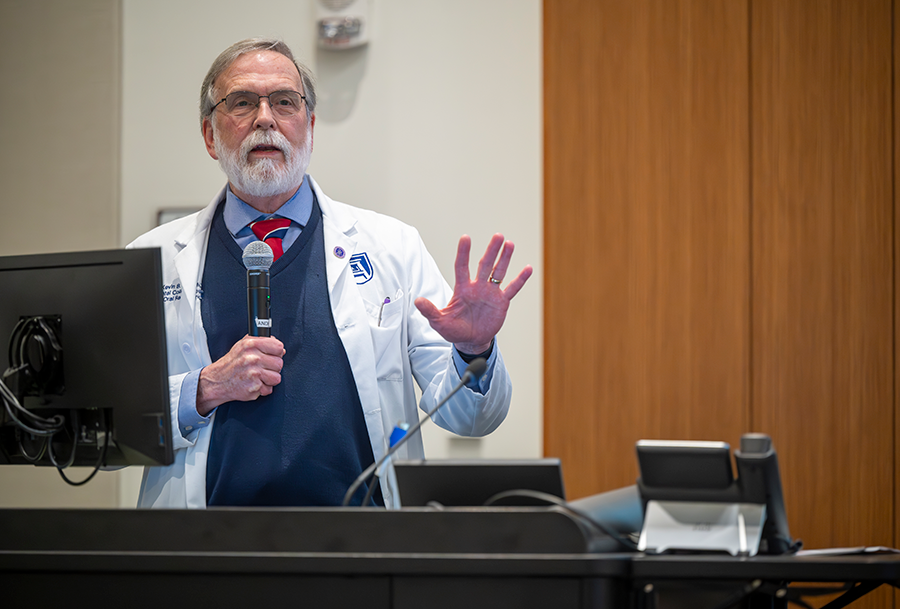
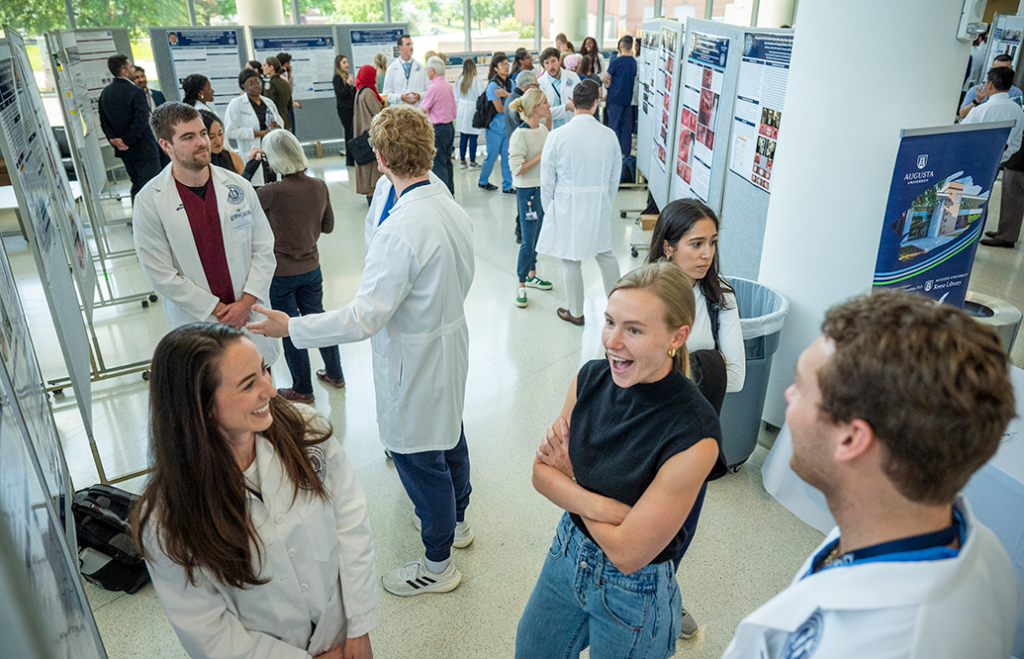
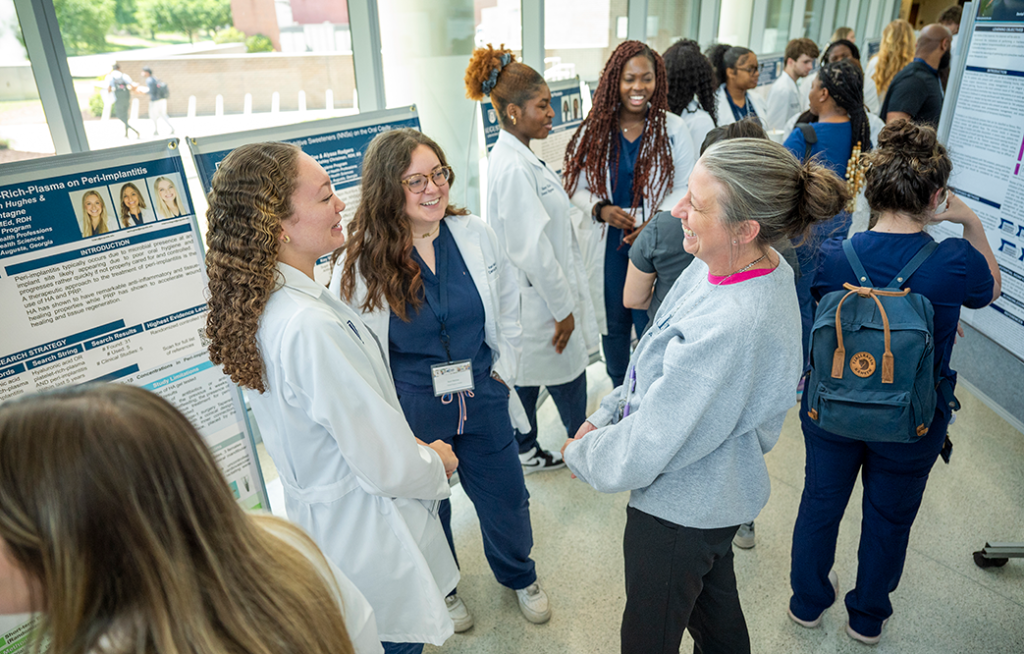
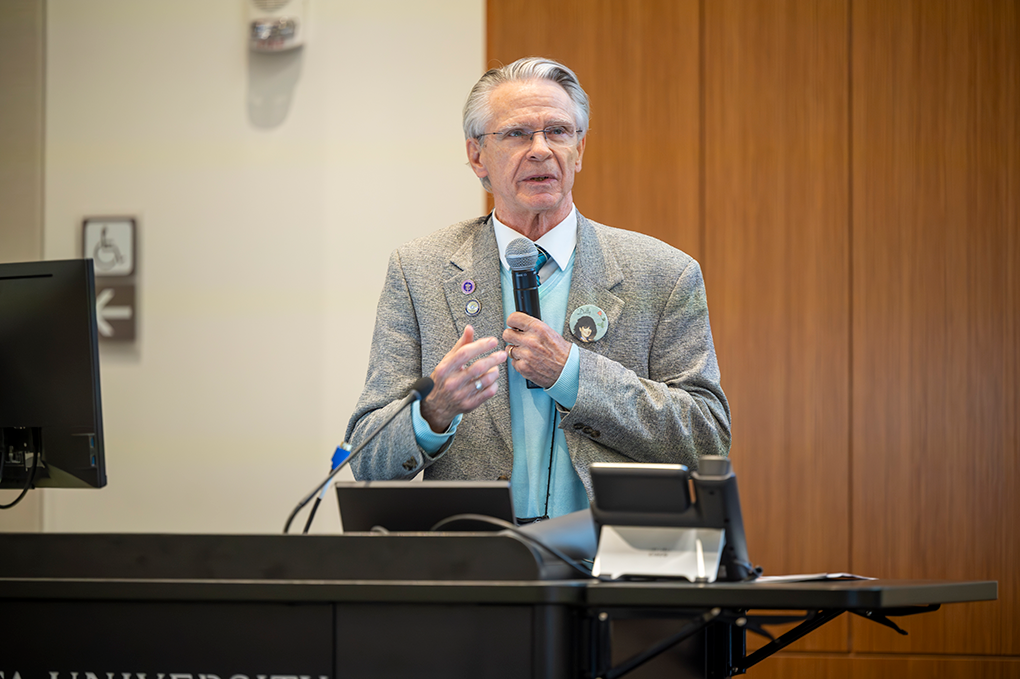
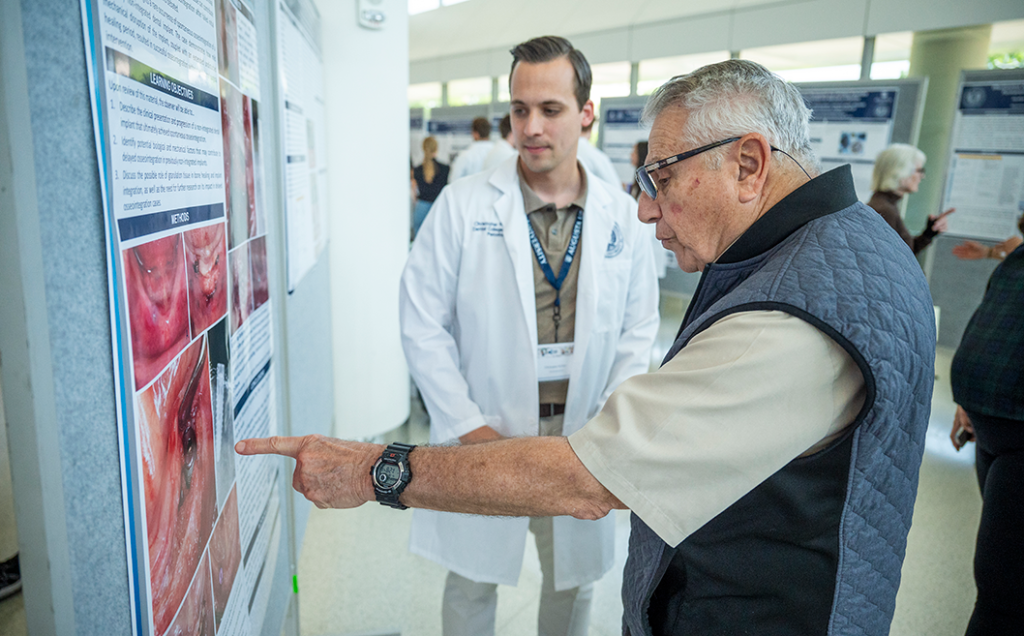
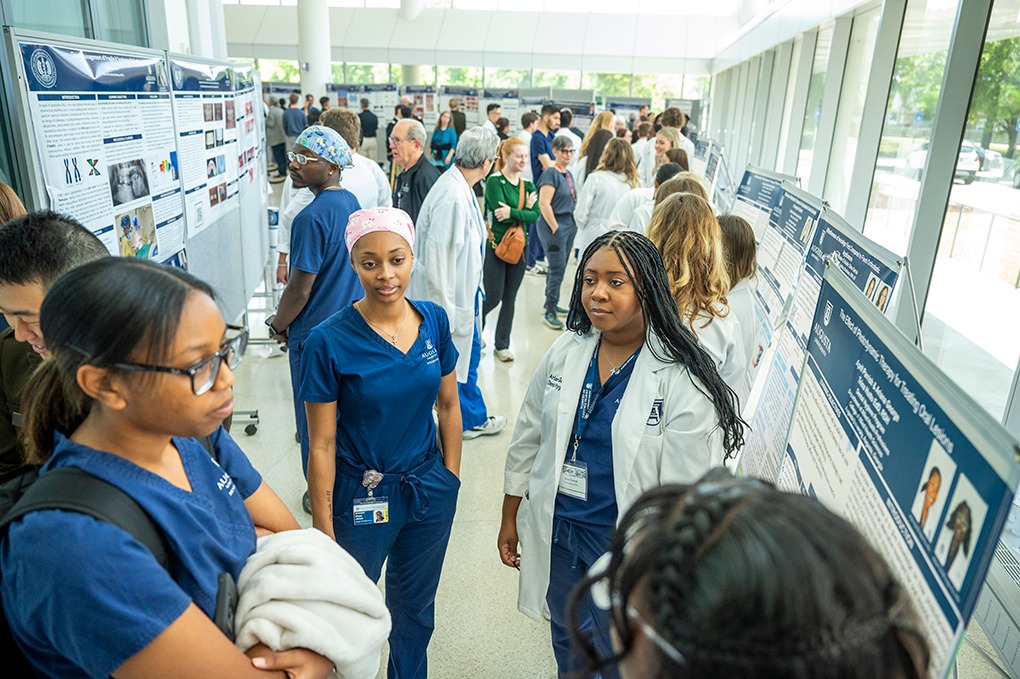
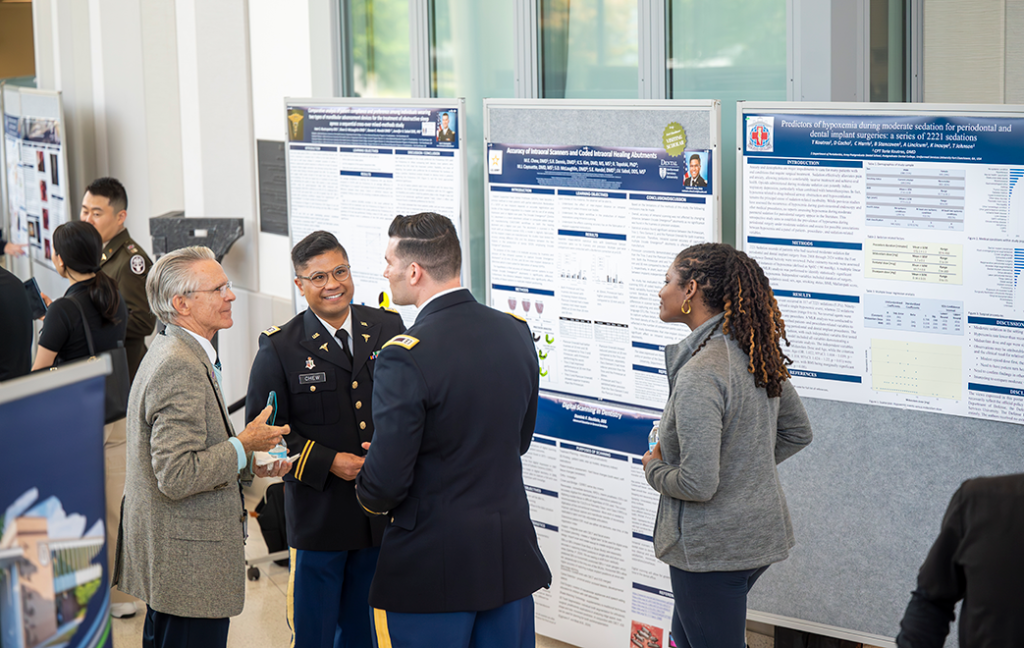
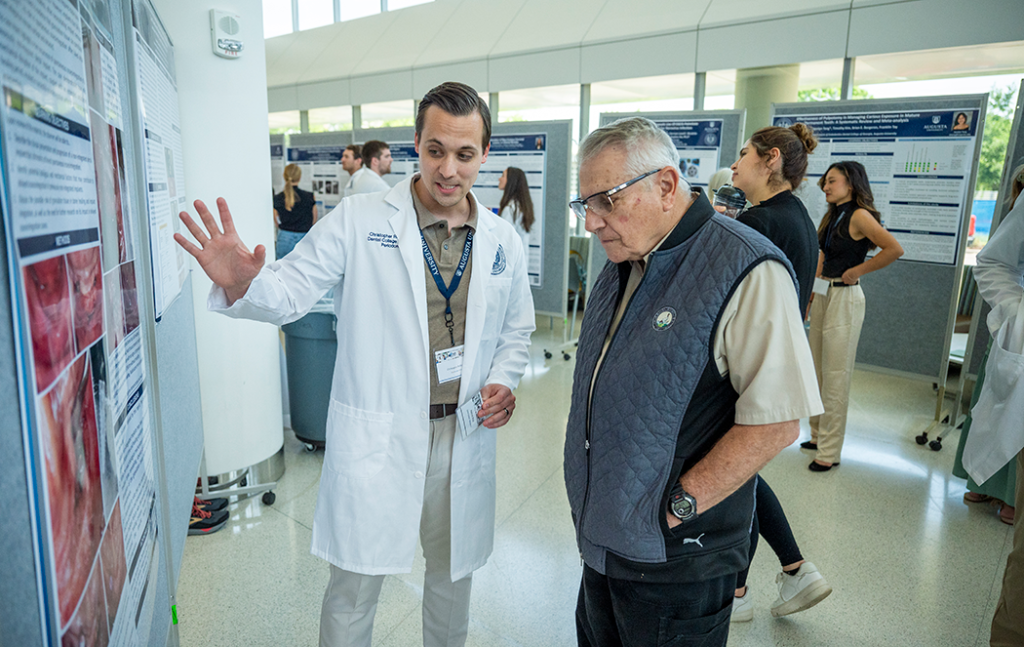
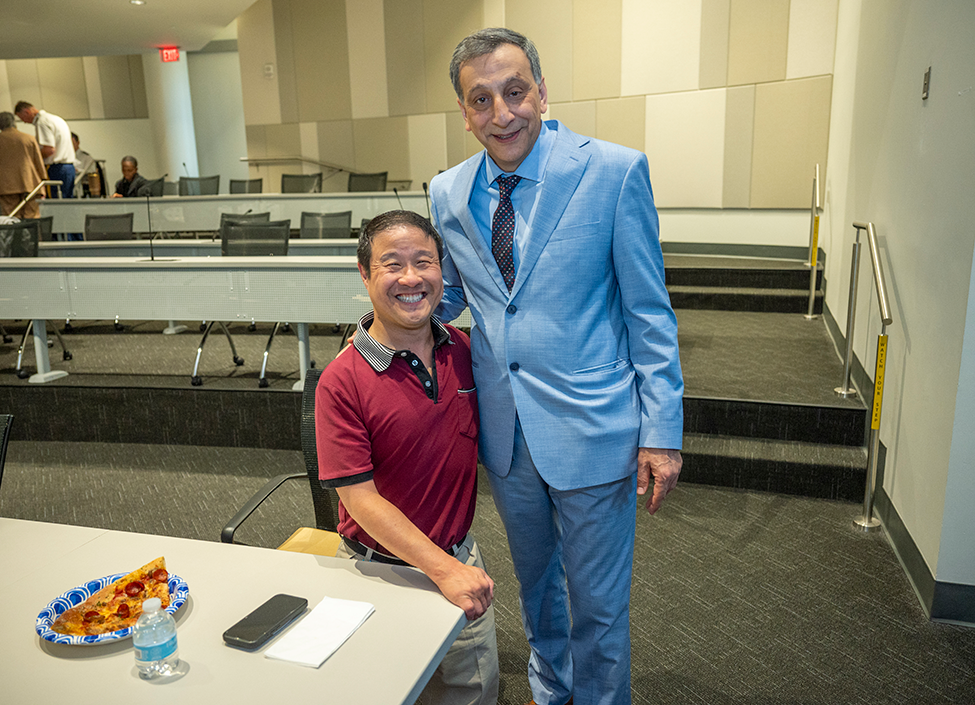
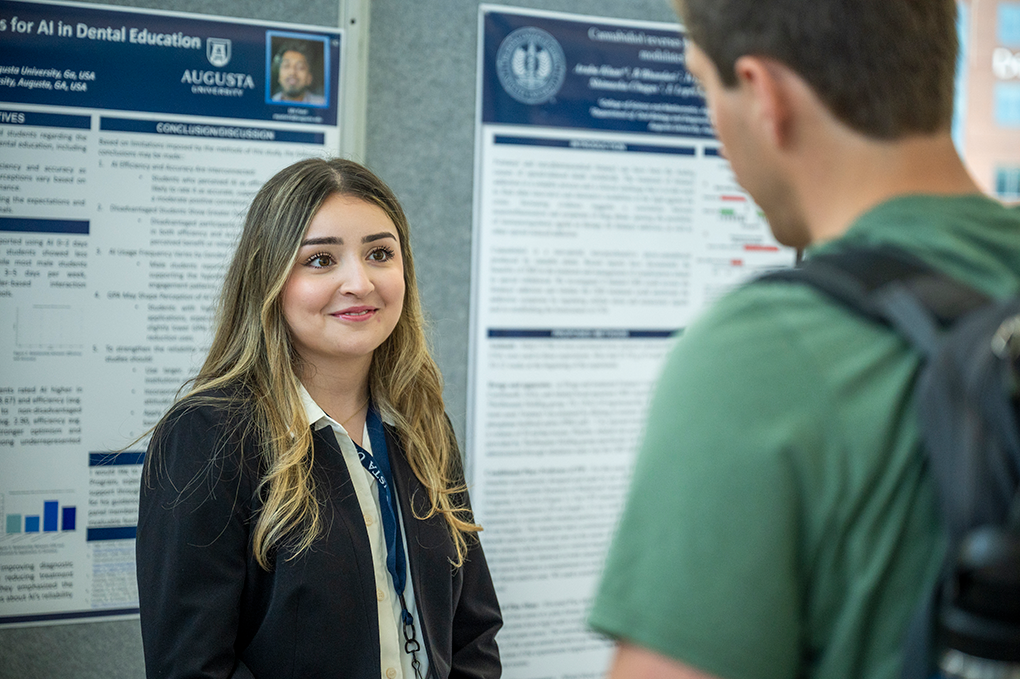
“It is a great opportunity to connect our groundbreaking discoveries from basic science into real-world clinical practice, and we want to show how the collaboration between scientists and clinicians can transition in a very effective way,” said Babak Baban, PhD, associate dean for research at DCG. “The discoveries translate to the patients’ health, improve the treatments, advance the science and ultimately the patient care and quality of their lives.”
The event had quite a turnout, with about 66 research presentations across seven categories. For some friendly competition, the presenters could choose to compete in their respective categories. A committee then selected three winners from each category.
“Judging was based on clarity of the topic, its importance, the significance and also the presentation. They put those together, and then they decide who is the top scorer,” Baban said. “All of them are winners by being here.”
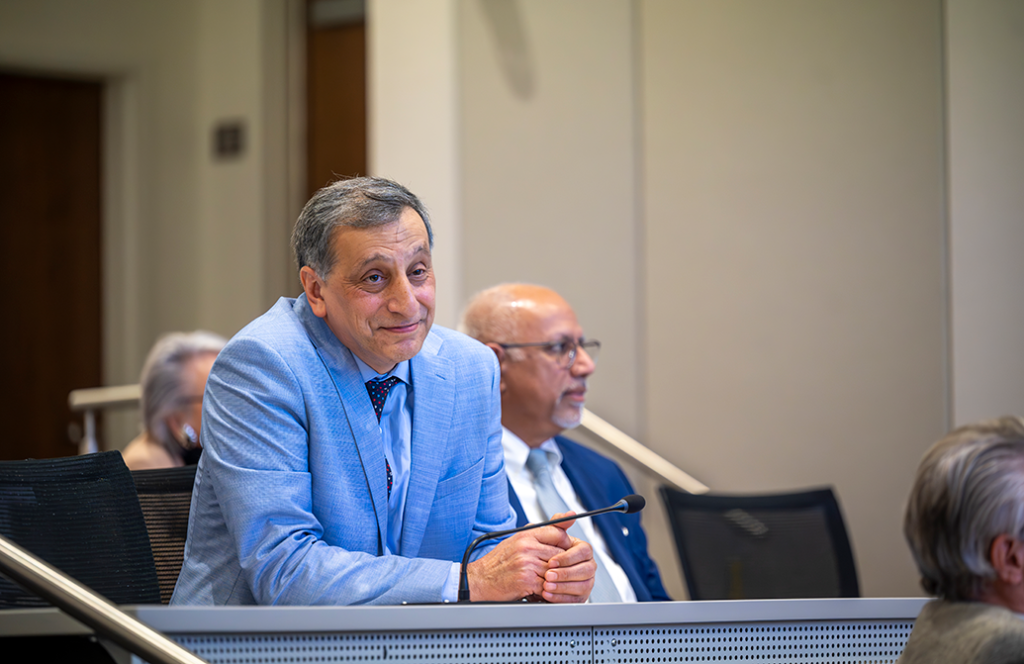
The presentations showcased collaboration between different disciplines, which Baban said was the main goal of the symposium.
“And one other thing is important: This year, we have two industries that are sponsoring us, and we are trying to have more industry sponsorship,” he said. “Two of them are attending this year, and they are big in the field of dentistry. So this is also another good thing that we have to promote.”
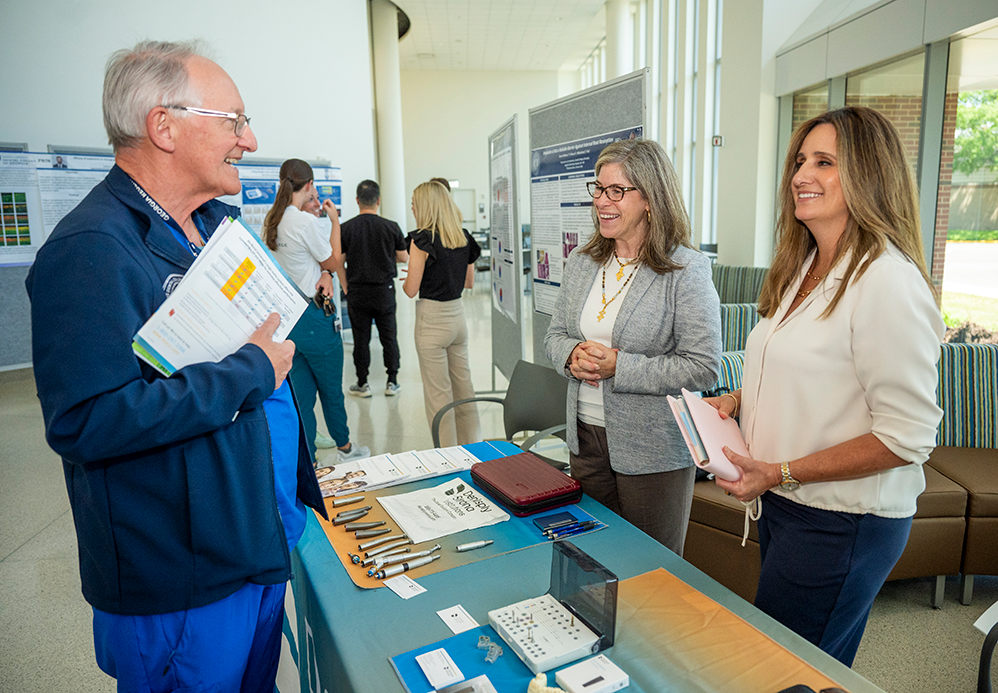
Researchers from the University of North Carolina, the University of Florida and the University of Alabama also joined in for the first time, as well as representatives from Fort Eisenhower.
Before the presentations, Franklin Tay, PhD, chair of the Department of Endodontics at DCG, delivered a lecture in tribute to David Pashley, DMD, PhD, an emeritus faculty member known for his contributions to the dental field.
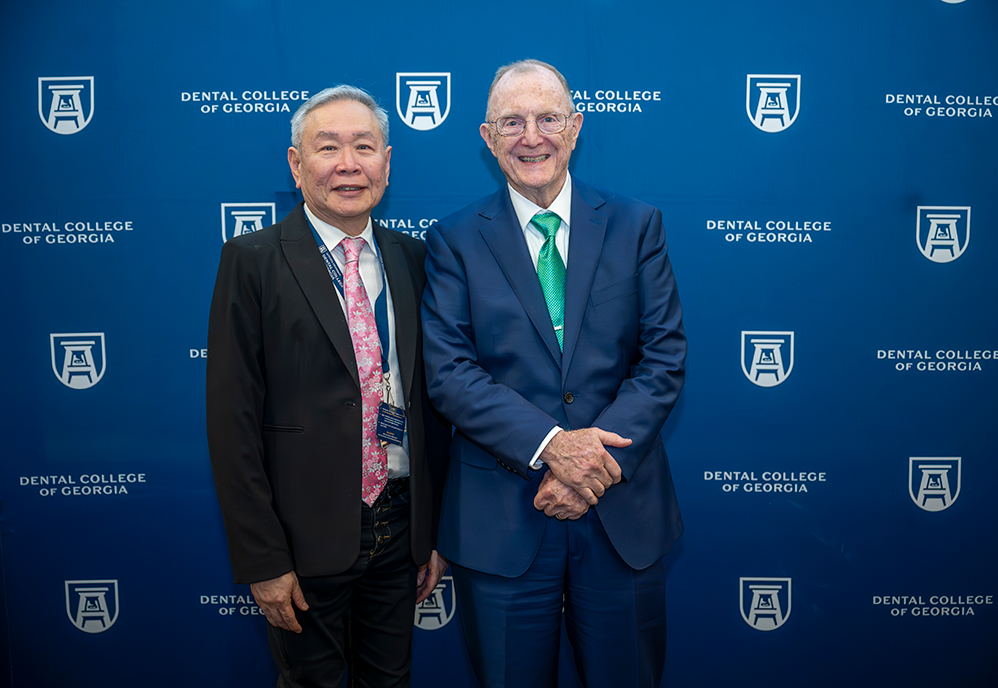
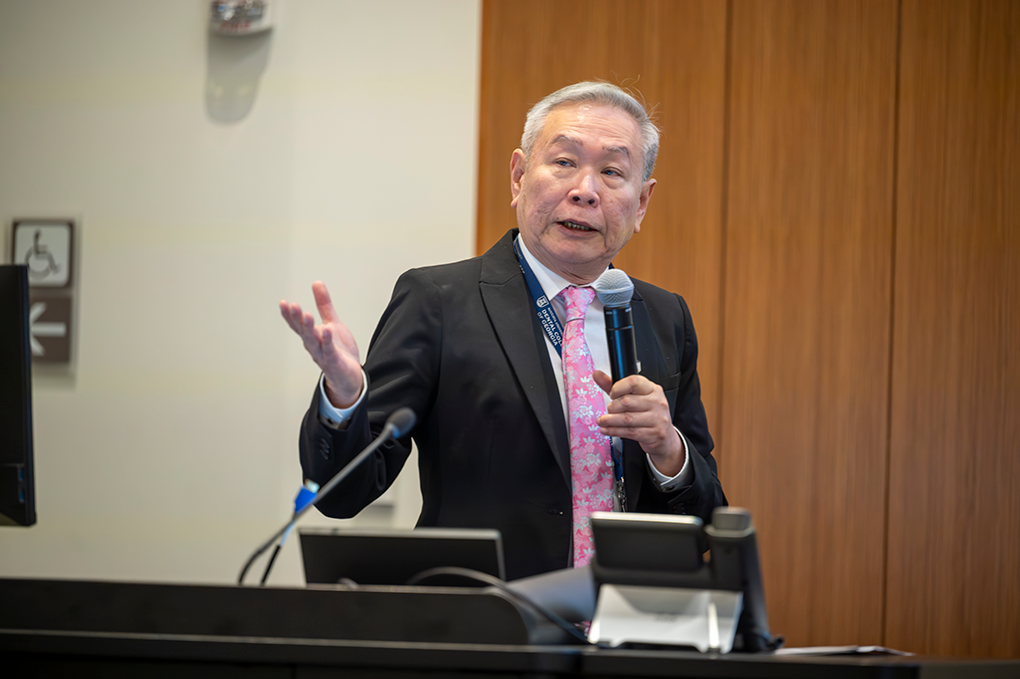
“Dr. Pashley is legendary here, and this creates interaction and exposure for the students. We try to gear the keynote speaker toward encouraging the students and telling them how important it is to connect basic science to bedside,” Baban said. “It is good exposure, and it is a great opportunity.”
After the lecture, it was time for presentations, and the day ended with an awards ceremony.
Bidhan Bhandari, a graduate research assistant in the Biomedical Sciences PhD program at AU, works in Baban’s lab. He was the principal investigator for his team’s presentation: Inhalant CBD alleviates the symptoms in migraine. The project won first place in its category, and he was awarded $200.
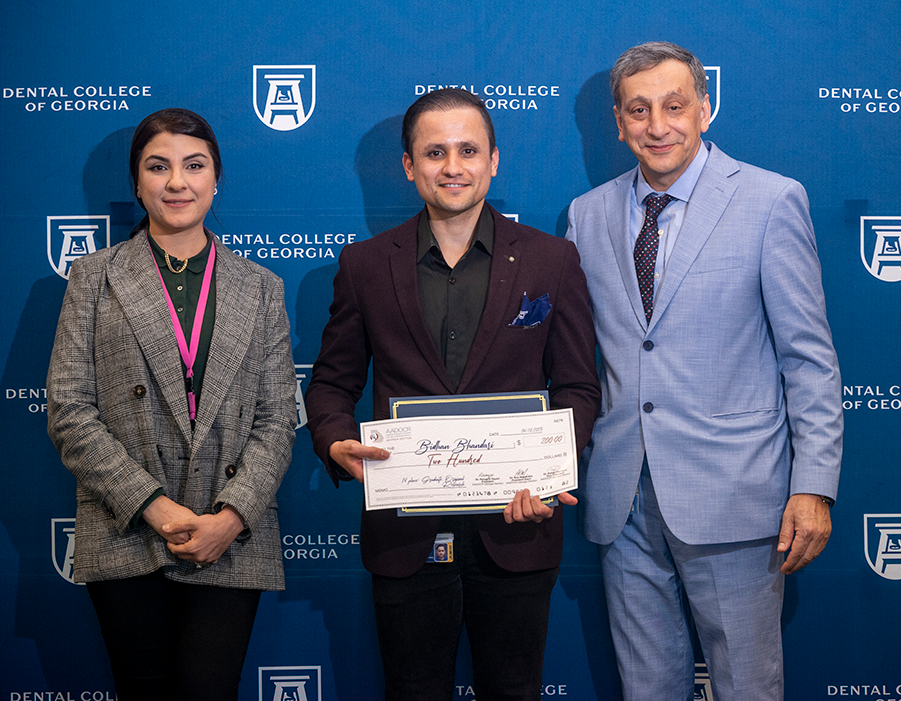
“CBD research itself is a growing topic, especially in the scientific community, as well as in the public demand,” Bhandari said. “We have already seen inhalant CBD’s positive impact on various inflammatory conditions and diseases based on our lab work, and with migraine itself being a neuro-inflammatory condition, we wanted to incorporate inhalant CBD in this model and see how effective it is.”
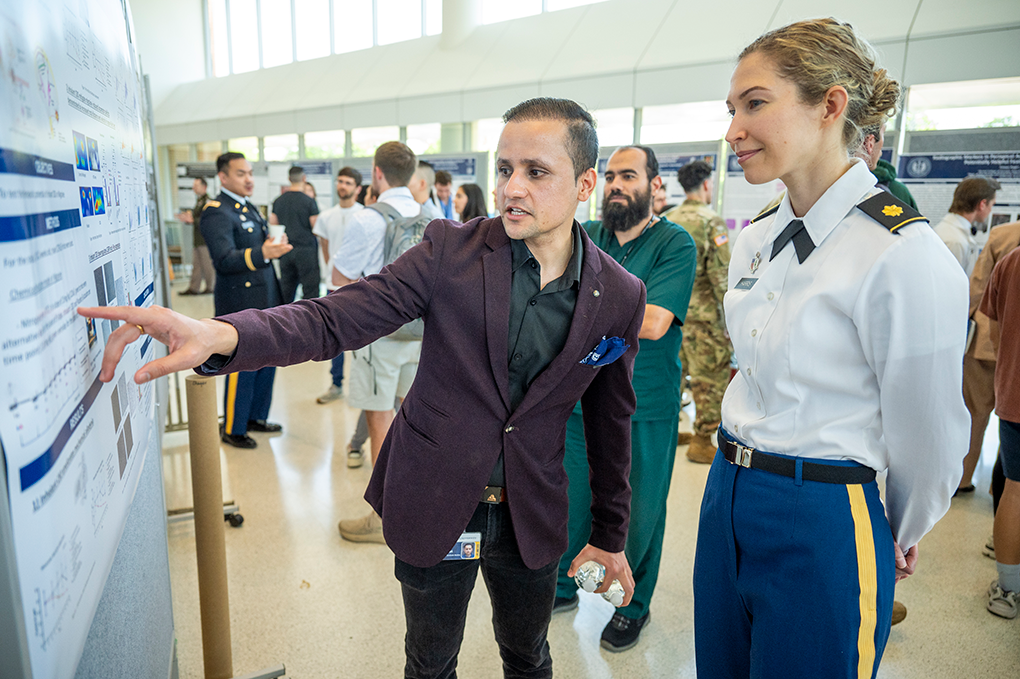
Bhandari’s team discovered that CBD can help relieve migraine symptoms, and he was proud to present their findings at the symposium.
“I’m very thankful for my mentor and my lab. I feel like PhDs are not just about the work you do; it’s also about the collaborations and the working environment that you have for a very long span of time,” he said. “This work would not have been possible without the whole team because I believe dream work is always about teamwork.”
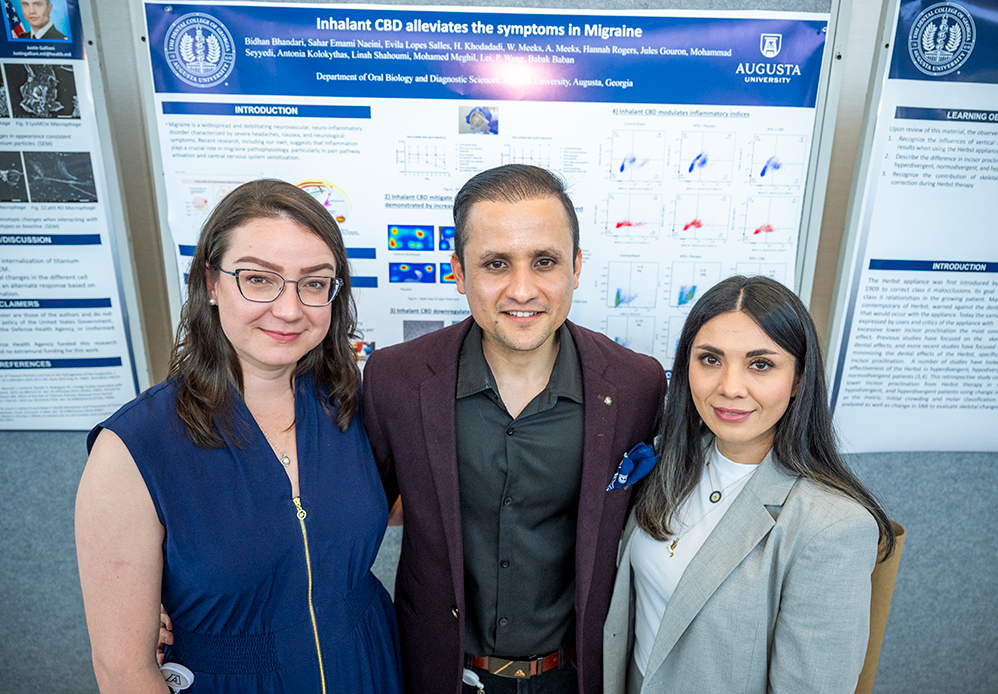
Aruba Khan was one of only two undergraduate students presenting at the symposium. As a third-year biology student, she also worked in Baban’s lab studying how CBD may be able to help people with opioid addictions.
“Fentanyl is one of the opioids that people get more addicted to,” she said. “We wanted to find a cost-effective and efficient way for those addicted to this drug to be able to wean off of it. We saw how CBD would affect stress signals, how it would affect behavioral patterns and anxiety. The mice that received the CBD treatment, their behavior was more closely related to a control group.”

Khan was grateful for the chance to work on this project as a student with pre-dental intent, and her findings have inspired her to continue down the research path.
“I’ve done research now for two-and-a-half years, so I definitely know I want to keep doing it throughout my undergrad and then when I do go to dental school one day, hopefully,” she said. “I know that I’m really interested in oral surgery, so I would love to do more research based on gingivitis and all that kind of stuff.”
Hannah Price, DMD, chose a project that was based on clinical research instead of research.
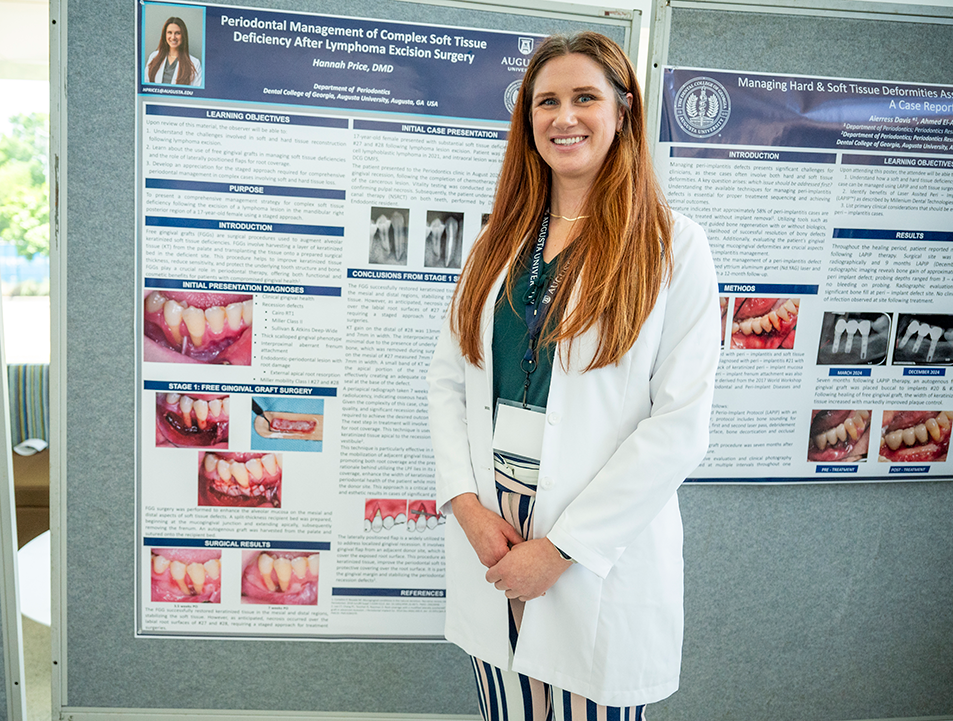
A second-year periodontics resident at DCG, Price recently performed an extremely uncommon and complicated operation on a 17-year-old girl with a previous lymphoma lesion in her gums near her back teeth.
When the DCG Oral and Maxillofacial Surgery department excised the lesion, it left the roots of some of the patient’s teeth exposed. Price was tasked with finding a way to cover the roots using soft tissue.
“She’s immunocompromised from all the chemotherapy and everything that she’s had, so we knew healing was going to be complicated, and it was going to be impaired, too,” Price said. “We wanted to do it in phases because she was missing so much soft tissue, and it was very inflamed tissue. It wasn’t healthy. It was hard to work with, too. It was very fragile. But we knew we needed to add the keratinized tissue back.”
The graft Price retrieved from the roof of the patient’s mouth appeared to be healing well, and she hopes she will soon be able to move on to the next step of treatment.
She’s grateful for the guidance she was given by senior DCG faculty, and she believes that taking on a complex case such as this one will help her move toward her goal of having her own periodontal practice one day. Her case report also won third place in its category, landing Price with a $50 check.
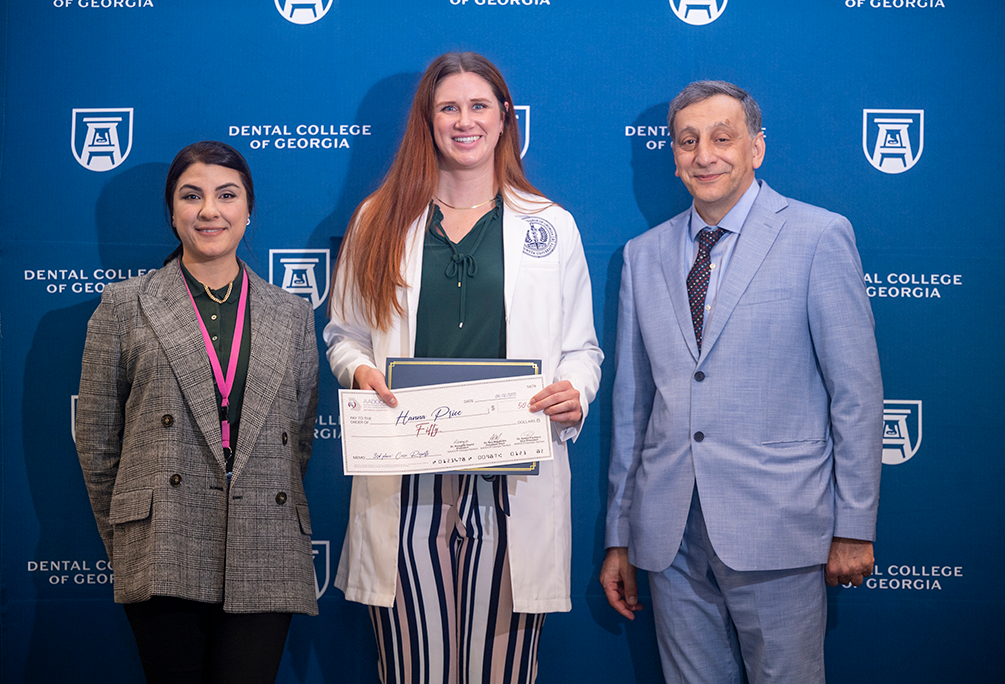
“There are periodontists who’ve been practicing for 20, 30 years who’ve never really seen something like this,” Price said. “It’s a really good opportunity for me to advance my clinical skills and my clinical knowledge because I can see these complex cases now, which, in turn, will help me to treat other patients later.”
Nancy Young, DMD, the dean of the Dental College of Georgia, believes these types of projects are just some of the many ways the school and its affiliates can showcase the important work they’re doing for people of all backgrounds.
“Evidence-based research is what we live by,” Young said. “This tells us where we need to go with the future for dentistry and what we need to base all of our clinical decisions on.”
Discoveries at Augusta University are changing and improving the lives of people in Georgia and beyond. Your partnership and support are invaluable as we work to expand our impact.
 Augusta University
Augusta University
